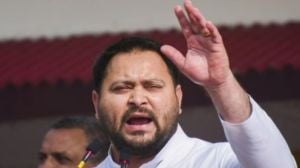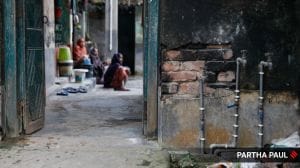British Army to pull out of Ulster
After patrolling Northern Ireland for a generation, the British army will effectively withdraw from the province within two years, Britain&#...

After patrolling Northern Ireland for a generation, the British army will effectively withdraw from the province within two years, Britain’s Northern Ireland secretary said this week.
Roman Catholic and Protestant politicians respectively welcomed and condemned the move, highlighting differences that could make it impossible for parties to cooperate in Northern Ireland’s local government.
Secretary Peter Hain’s Belfast announcement comes in response to the end, last Thursday, of the Irish Republican Army’s 36-year guerrilla war against Britain.
Addressing concerns from the predominantly Protestant Unionists, who want Northern Ireland to remain with the United Kingdom, Hain said that his ‘‘first and over-riding priority’’ is ‘‘the safety and security of the people of Northern Ireland’’, adding, ‘‘We will not do anything that will compromise that.’’
His words did little to assuage Unionist fury over any dealings with the IRA before it completely disarms, or, as many Unionists demand, dissolves itself entirely.
The plan for demilitarisation ‘‘is a surrender to the IRA, and is further evidence of bad faith on the part of the government,’’ said Ian Paisley, leader of the Democratic Unionists, the hard-line Protestant party that is Northern Ireland’s largest political group. He called the decision ‘‘a scandalous betrayal’’, and threatened to boycott talks aimed at restarting the legislature, which has barely functioned since it was set up in 1998 to share power between Protestant and Catholic parties.
Republicans, who are predominantly Catholic and want Northern Ireland to join the Irish Republic, celebrated the plan as a long-overdue step toward normalising daily life and ending what they consider Britain’s military occupation.
‘‘It is for all our benefit, Unionists as well as Republicans,’’ said Conor Murphy of the Sinn Fein. ‘‘Who wants to live in a militarised society?’’
The army’s decision is a welcome step for British Prime Minister Tony Blair, who needs military resources to focus on threats like the bombers who attacked London’s transportation system last month, and now no longer faces the threat of fighting terrorists on two fronts, according to Paul Bew, professor of politics at Queens University in Belfast.
‘‘You don’t want anybody in the security forces to be thinking about anything but Al-Qaeda,’’ Bew said. —NYT



- 01
- 02
- 03
- 04
- 05




























